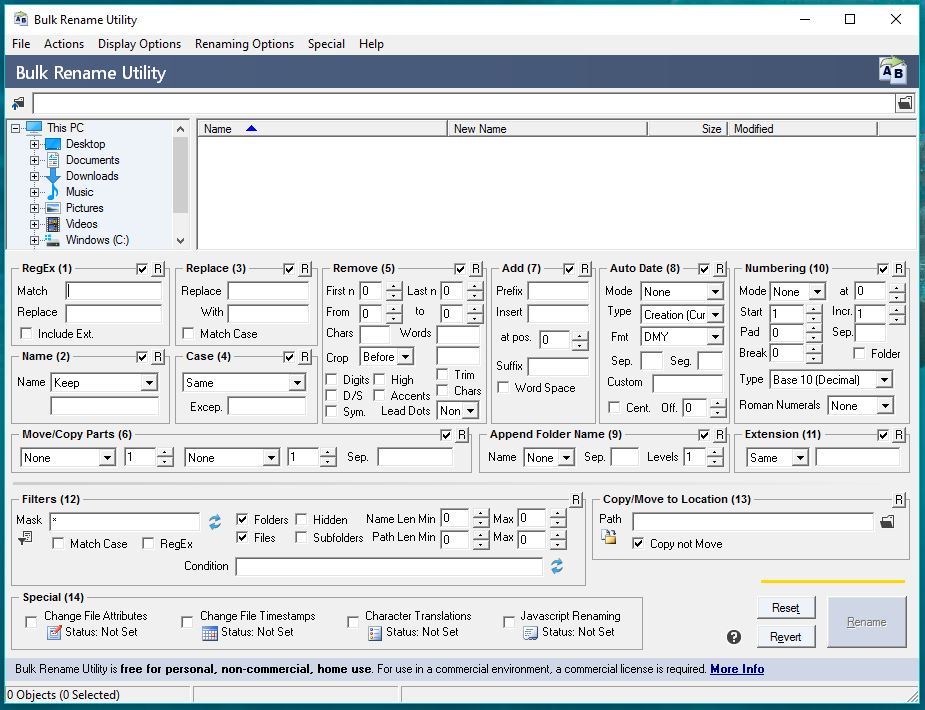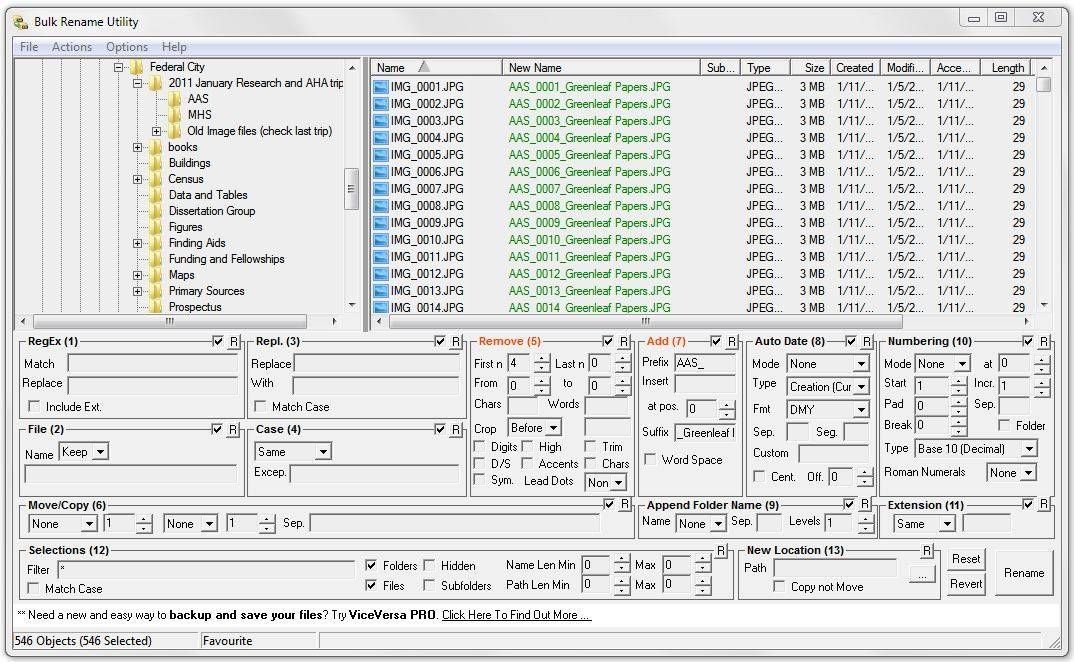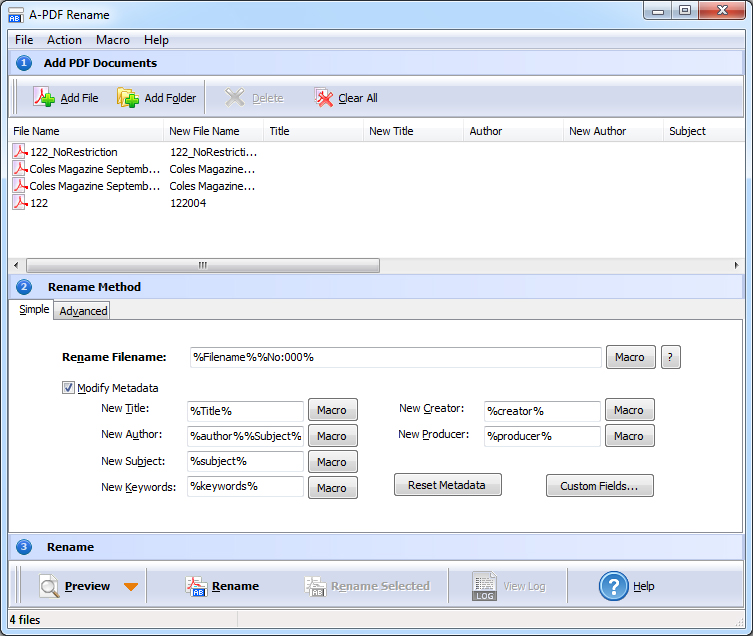

Rename files quickly and easily! You can add multiple advanced renaming actions, allowing you to completely customize how the file name should be changed.You can also rename files with just two clicks, directly from Windows!Īutomatically set MP3, OGG, WMA, M4A, APE, FLAC, MPC tags, organize your photos based on their type or size, fix irritating issues like double spaces or wrong casing in file names, and much more. With File Renamer Turbo, you can easily rename multiple files in one batch. Now you can save time and get better file names in a matter of seconds. Keeping track of all your music, images, videos and other files will quickly become a chore unless you carefully manage the file names. On a command line, navigate to the folder where you have stored your Python script.Quickly rename multiple files & folders and tag your music library!.After the for-loop, print out a confirmation message: print( "All files renamed.").Increment the counter for the next file: counter += 1.NewFileName = os.path.join(dir_path, new_filename) Rename the file with the new filename: oldFileName = os.path.join(dir_path, filename).Add a count at the end of the filename, and re-add the file extension: new_filename = pattern.format(counter) + file_ext Create a new filename based on the given pattern.Inside the for-loop, when looping through each file, get its file extension: file_ext = os.path.splitext(filename).Print( 'Enter a pattern for the new filenames as a command line argument') If the user does not enter one, print out an error message: commandLineArgs = sys.argv After the import statements, get the command-line argument entered.python batch-rename.py "Financial_Planning" When running the script on the command line, you can enter the pattern that you want to use to rename your files. import sys This will allow you to accept command-line arguments. At the top of the file, import the sys module.


The script will rename all the files to the provided pattern, and append a count at the end of the filename. The user will need to enter a pattern into the script, such as "Financial_Planning". How to Rename All Files Based on a Given Pattern


 0 kommentar(er)
0 kommentar(er)
